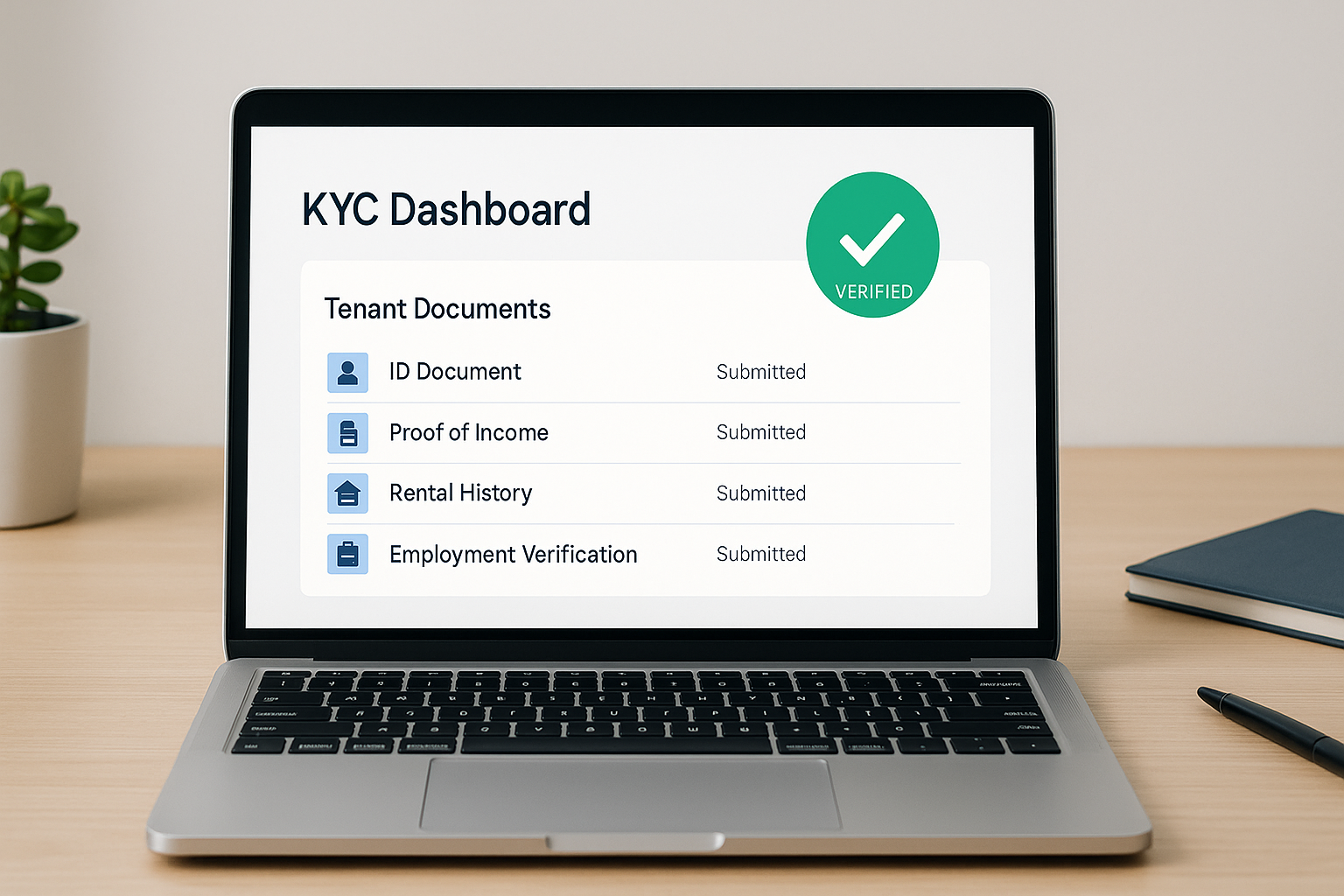
Smarter Tenant Screening and Risk Management with AI-Powered KYC

Do you know your customer? If you’re a landlord or a mortgage broker, you might need to start. KYC for mortgage brokers was mandated in 2024 in Canada and the United States, including Geographic Targeting Orders (GTOs), which require real estate closers and agents to identify the person behind all high value real estate purchases. Since real estate varies by locale, GTOs are provided to specific cities and use specified thresholds based on house prices in the area.
While landlords aren’t generally covered by KYC the same way property owners or mortgage brokers are, they still have a vested interest in knowing who is living in their home (and might even apply “GTO-like” thresholds to high value leases!). In both situations, knowing your customer can help avoid sanctions, fines, and poor tenants. However, sorting through documents like employment letters, pay stubs, and tenant histories can be difficult – especially for smaller property managers or private landlords.
AI-based KYC Systems for Landlords
In 2024, a survey from the National Multifamily Housing Council (NMHC) reviewed survey responses from 75 leading apartment managers, owners, and developers in the United States – and virtually all of these property managers had experienced tenant fraud in the last year. 70% of the NMHC survey respondents also reported attempts at identity theft, ID fraud, or the use of financial information that did not match the tenant to secure a lease.
Stronger KYC protocols are a solution, even when they aren’t technically required. Tenant fraud is a major problem for landlords. One property manager surveyed by the National Apartment Association suggested that as many as 40% of his rental applications were fraudulent, which puts revenue at stake every month. With economic conditions pushing rental applications up and fraud rates on the rise, it’s often worthwhile for property managers to invest in the right tools to flag, screen, and lease to their tenants.
What do AI KYC Systems Do?
Artificial intelligence excels at pulling patterns from data, including communication from tenants. A report from the University of Cambridge suggested that fraudulent listings often use persuasion, such as emotional language designed to evoke emotion or fear, a false sense of urgency, vague answers, and trust cues. AI-powered platforms can pick up on renters looking to rent what they can’t afford, either through these written cues or through altered bank statements, doctored paystubs, or a fake credit score.
But how about a tenant that creates a false identity or doctors their own? Buyers, renters, or leaseholders can also attempt to create a “synthetic identity” with a clean credit profile, using a mix of their own personal information (ie. a name that matches their ID) and information that belongs to someone else (a doctored copy of someone else’s paystub).
Synthetic identities can sometimes be a way to avoid KYC regulations (like disclosing ownership of a shell company), so a good compliance program is critical to making sure the person on the application is the same one standing in front of you. AI-powered KYC tools can even be used at a smaller scale. AI agent models help to create risk profiles for your tenants based on your existing information or profiles. They can help create risk criteria to determine ‘buckets’ of acceptable renter risk and tailor verification protocol (for example, tenants with a credit score below 625 must provide additional references or paystubs). AI powered KYC can also be combined with multimodal biometrics to not only find top tier applicants, but ensure they are who they say they are.
The advent of advanced fraud techniques, like synthetic identities, means that a combined human/machine hybrid approach might be the best way to ensure a robust program for avoiding fraud. Like more formal KYC programs, landlords, property managers, and brokers need to know who is on the other side of each transaction – and AI powered tools are a sophisticated, powerful way to reach this goal.
Unstructured data can easily be indexed, sorted, filtered, and analyzed by Discrepancy AI
Start for Free








.png)

.png)

.png)

.png)

.png)

.png)
.png)


.png)

.png)
.png)
.png)
.png)





